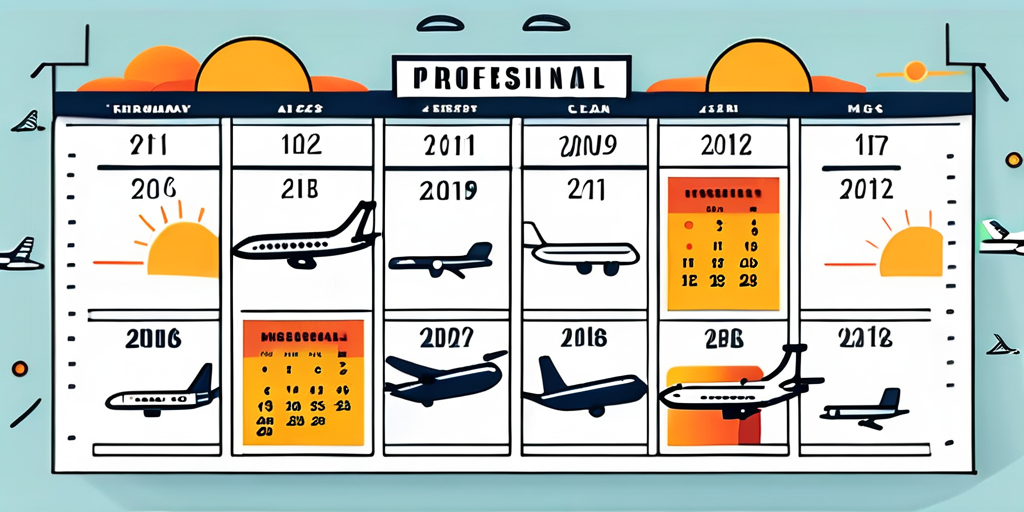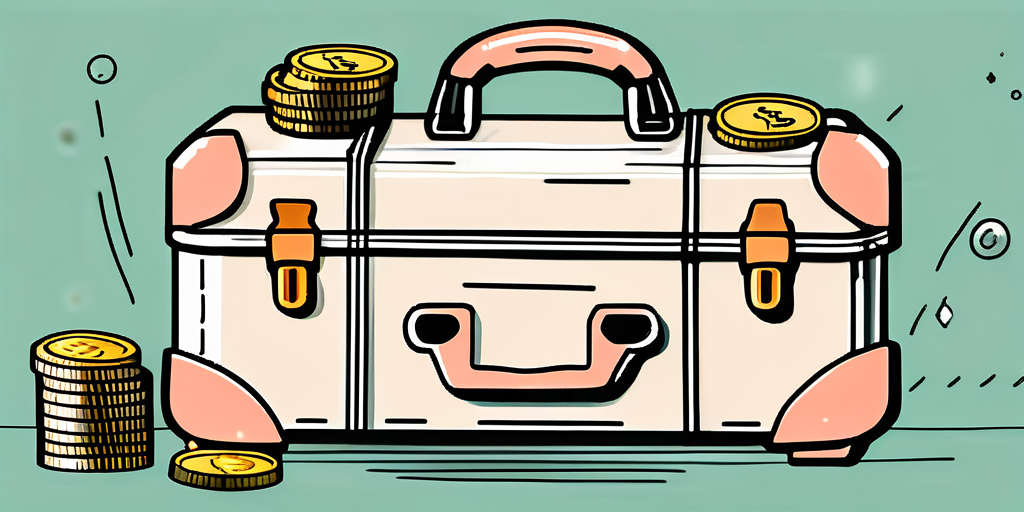8 Tips To Save Money On Hotels

When it comes to planning a trip, one of the biggest expenses can be accommodation. But who says staying in a nice hotel has to break the bank? With a little bit of planning and some insider knowledge, you can save money on hotels without sacrificing comfort or quality. In this article, we’ll explore some tips and tricks to help you get the best deals and make the most of your travel budget.
1. The Benefits of Loyalty Programs
Many hotel chains offer loyalty programs that reward frequent guests with discounts, free upgrades, and other perks. Signing up for these programs is often free, and the benefits can be significant. Not only will you save money on future stays, but you may also enjoy exclusive access to amenities or special member-only rates. It’s worth taking the time to enroll in loyalty programs before booking your next hotel stay.
One key advantage of loyalty programs is the ability to earn points or miles for each stay, which can then be redeemed for free nights or flights. These rewards can add up quickly, especially for those who travel frequently. Additionally, some loyalty programs offer elite status tiers that come with even more benefits, such as priority check-in, late check-out, and complimentary breakfast. By achieving elite status, loyal customers can enhance their overall hotel experience.
Furthermore, many hotel loyalty programs have partnerships with other companies, allowing members to earn points through various activities beyond just hotel stays. For example, members may earn points by renting a car, booking a cruise, or dining at participating restaurants. This versatility provides customers with more opportunities to accumulate points and enjoy the rewards offered by the loyalty program. It’s a win-win situation for both the guests and the hotel chain, fostering a sense of loyalty and mutual benefit.
2. Comparing Online Booking Platforms
When searching for hotels online, it’s essential to compare prices across different booking platforms. While some platforms may offer exclusive deals, others may have lower rates for the same room. Take advantage of price comparison websites to ensure you’re getting the best possible deal. Additionally, consider booking directly with hotels, as they may offer better rates or additional benefits for direct bookings.
It’s also worth noting that some booking platforms offer loyalty programs or rewards for frequent users. These programs can include perks such as free room upgrades, late check-out options, or even discounts on future bookings. By signing up for these loyalty programs, you can maximize your savings and enhance your overall booking experience.
Furthermore, when comparing online booking platforms, don’t forget to read reviews and ratings from other travelers. User feedback can provide valuable insights into the quality of the hotel, customer service, and overall experience. Look for platforms that have transparent review systems and prioritize customer feedback, as this can help you make an informed decision when booking your accommodation.
3. Tips for Finding Last-Minute Deals
If you’re the spontaneous type or simply enjoy the thrill of last-minute travels, there are ways to find great hotel deals. Many hotels offer discounted rates for last-minute bookings to fill up vacant rooms. Utilize online travel platforms that specialize in last-minute deals or call hotels directly to inquire about any available discounts. Flexibility with your travel dates can also increase your chances of snagging a fantastic deal.
Another strategy to consider when hunting for last-minute deals is to sign up for hotel newsletters or loyalty programs. Hotels often send out exclusive deals and promotions to their subscribers, which can include significant discounts on room rates or additional perks like complimentary breakfast or spa credits. By staying informed through these channels, you might just stumble upon a hidden gem of a deal that’s perfect for your spontaneous getaway.
Additionally, keep an eye out for flash sales or limited-time offers from hotels and online booking platforms. These promotions can pop up unexpectedly but can provide substantial savings if you’re quick to act. Following social media accounts of hotels and travel websites can be a great way to stay in the loop about any upcoming flash sales or exclusive discounts. Remember, being proactive and staying alert to these opportunities can lead to remarkable savings on your next impromptu adventure.
Discount codes and coupons have become a popular tool for both consumers and businesses in the competitive world of online booking. They not only help travelers save money but also enable hotels to attract more customers and increase their occupancy rates. In addition to the traditional sources mentioned earlier, such as hotel websites and online coupon websites, discount codes and coupons can also be obtained through loyalty programs or email newsletters. Signing up for a hotel’s loyalty program or subscribing to their newsletter can provide you with exclusive access to special deals and promotions that are not available to the general public.Moreover, some hotels offer dynamic pricing, where the room rates fluctuate based on demand and availability. In such cases, using discount codes or coupons can give you an edge in securing a lower rate, especially during peak seasons or popular events. It’s worth keeping an eye out for flash sales or limited-time offers that hotels may release to drive bookings during slower periods. By being proactive and strategic in your search for discounts, you can make significant savings on your hotel stays without compromising on quality or comfort.
4. Choosing Off-Peak Travel Dates
Traveling during off-peak seasons can lead to significant savings on hotel accommodations. Prices tend to be lower when tourist destinations are less crowded, and hotels are more eager to fill their rooms. Consider traveling during weekdays or during times when schools are in session to take advantage of off-peak rates. Plus, you’ll avoid the crowds and enjoy a more tranquil travel experience.

When planning your off-peak travel, it’s important to keep in mind that the weather can vary depending on the destination and the time of year. For example, traveling to a beach destination during the off-peak season may mean cooler temperatures and fewer beachgoers, but it could also offer a unique opportunity to explore the area without the usual hustle and bustle. On the other hand, visiting a mountainous region during the off-peak season might mean encountering snow or limited accessibility to certain hiking trails, but it could also provide a peaceful and picturesque winter wonderland experience.
5. Exploring Alternative Accommodation Options
Hotels aren’t your only option when it comes to finding a place to stay. Consider alternative accommodation options, such as vacation rentals, hostels, or bed and breakfasts. These alternatives can often be more cost-effective, especially for longer stays or when traveling in large groups. Research the different options available in your destination and compare prices to find the best fit for your budget.

When it comes to vacation rentals, you can choose from a wide range of properties, including apartments, houses, and even unique accommodations like treehouses or houseboats. These options provide a more personalized experience, giving you the chance to live like a local and immerse yourself in the culture of your destination. Many vacation rentals also come with amenities such as kitchens and laundry facilities, making them a convenient choice for travelers looking for a home away from home.
Hostels are another popular alternative accommodation choice, especially among budget-conscious travelers and backpackers. These communal living spaces offer dormitory-style rooms as well as private rooms, providing a social atmosphere where you can meet other like-minded travelers. Hostels often organize group activities and tours, making them a great option for solo travelers looking to make new friends and explore their destination in a fun and affordable way.
Negotiating rates directly with hotels can be a strategic way to secure the best deal for your stay. In addition to being flexible with your travel dates, consider mentioning any special occasions or events you may be celebrating during your stay. Hotels often appreciate guests who are celebrating milestones such as birthdays, anniversaries, or even a honeymoon, and may be more inclined to offer a discounted rate or complimentary upgrade as a gesture of goodwill.Another tip for negotiating rates with hotels is to inquire about any loyalty programs or membership discounts they offer. Many hotel chains have loyalty programs that provide perks such as discounted rates, complimentary breakfast, or room upgrades for members. If you are a frequent traveler or planning an extended stay, joining these programs can not only save you money but also enhance your overall hotel experience. Remember, it never hurts to ask about available discounts or promotions that you may qualify for.
6. Taking Advantage of Package Deals
Package deals that combine hotel accommodations with other travel components can often be a fantastic way to save money. Look for packages that include flights, car rentals, or attraction tickets along with your hotel stay. These bundles can offer significant savings compared to booking each component separately. Moreover, packages often come with added perks, such as complimentary breakfast or spa credits.

When booking a package deal, it’s essential to consider the flexibility it offers. Some packages may have strict travel dates or limited options for customization. However, many providers now offer flexible packages that allow you to adjust your travel dates or add extra services with ease. This flexibility can be particularly beneficial if your travel plans are subject to change or if you prefer to have more control over your itinerary.
Another advantage of opting for package deals is the convenience they provide. By booking everything together, you can save time and effort that would otherwise be spent researching and booking each component individually. This streamlined approach not only simplifies the booking process but also ensures that all your travel arrangements are coordinated seamlessly, reducing the risk of any logistical issues during your trip.
7. Understanding Refund and Cancellation Policies
Before making any hotel reservations, it’s important to understand the refund and cancellation policies. Life happens, and unexpected circumstances may force you to change or cancel your travel plans. Opt for hotels with flexible cancellation policies that allow for changes up to the last minute without penalties. This way, you’ll have peace of mind knowing that you won’t lose money if your plans change unexpectedly.
When reviewing refund policies, pay attention to whether the hotel offers a full refund, a partial refund, or credit for a future stay. Some hotels may have different cancellation deadlines for standard bookings versus non-refundable bookings, so be sure to read the fine print carefully. It’s also worth considering purchasing travel insurance to protect yourself in case of unforeseen events that may disrupt your trip.
Additionally, keep in mind that some hotels may have specific cancellation policies for peak seasons or special events. During busy periods, such as holidays or local festivals, hotels may have stricter cancellation policies or require a longer notice period for changes. By familiarizing yourself with these policies before booking, you can avoid any surprises and ensure a smooth and stress-free travel experience.
8. Budget-Friendly Amenities to Look For
When choosing a hotel, consider the amenities that are included in the rate. Some hotels offer complimentary breakfast, free Wi-Fi, or access to fitness centers or swimming pools. These extra perks can save you money on meals or entertainment expenses during your stay. By choosing a hotel with budget-friendly amenities, you can enjoy a comfortable stay while keeping your travel expenses in check.
Additionally, some budget-friendly hotels may offer shuttle services to popular tourist attractions or airport transfers at no extra cost. This can be a convenient and money-saving option for travelers looking to explore the city without worrying about transportation expenses. Furthermore, certain hotels may provide complimentary happy hours or evening social events, allowing guests to unwind and socialize without spending extra money.
In conclusion, saving money on hotels is possible with a bit of research and planning. From joining loyalty programs to comparing prices and exploring alternative accommodation options, there are plenty of strategies to help you maximize your travel budget. Whether you’re a budget traveler or simply looking to make your money go further, following these tips will ensure you find affordable and enjoyable accommodations for your next trip. Happy travels!

